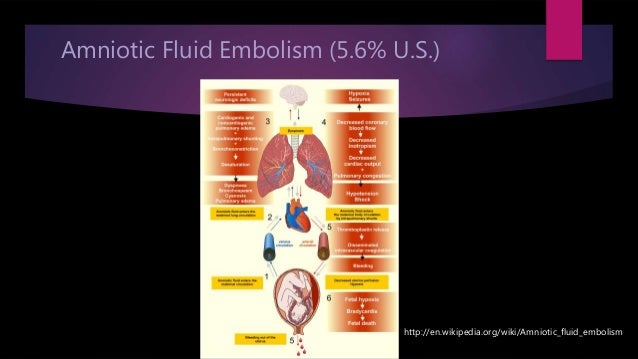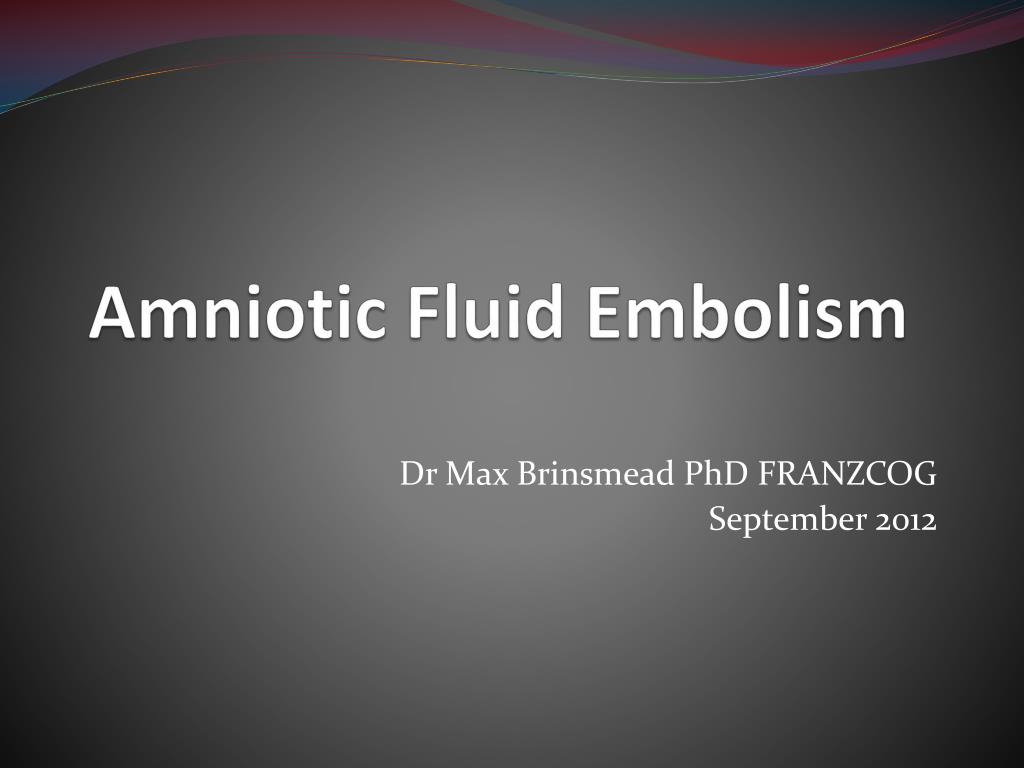

These survival rates have improved significantly over the past few decades as the detection methods and medical interventions have been refined.ĭespite these improvements in survival, there is still a high rate of complications for those who do survive. Reported rates of death have been as high as 86%, with about 50% of these patients dying very quickly, usually within the first hour after symptoms begin. Complications of amniotic fluid embolismĪmniotic fluid embolisms are considered a medical emergency. However, given those risks are always important to consider when making an informed decision about your delivery mode. The reasons why inductions of labor, operative vaginal deliveries, and cesarean deliveries have an increased risk of amniotic fluid embolisms are not fully understood. Operative vaginal deliveries, meaning vaginal deliveries that require assistance with either forceps or a vacuum, and inductions of labor also seem to increase the risk of amniotic fluid embolisms over unassisted and spontaneous vaginal deliveries. Of the rest, 19% occurred during cesarean delivery while 11% occurred during a vaginal delivery. A 1995 analysis of the US national registry revealed that the majority of amniotic fluid embolisms occur during labor (70%). They can also occur up to 48 hours after a delivery. Placental abruption (early separation of the placenta from the uterine wall)ĭelivery method and amniotic fluid embolismĪmniotic fluid embolisms can typically occur during labor, soon after vaginal or cesarean delivery, or during second-trimester dilation and evacuation procedures.Polyhydramnios (high amount of amniotic fluid).Multiparity (having had more than one child).Multiples pregnancy (twins, triplets, etc.).While we can’t really predict amniotic fluid embolisms, there are several risk factors that have been identified. Risk factors for amniotic fluid embolismĮven though AFE is rare, you may want to know its risk factors to best inform yourself. Those who support this theory suspect that amniotic material (like an embolism) causes a blockage or triggers a response in the lungs that sets off a cascade ultimately leading to organ failure and/or death if not caught and managed early. The later clinical findings of an amniotic fluid embolism and septic shock do share some commonalities that suggest a similar underlying mechanism. With this type of response, an amniotic fluid embolism is a reaction that is more similar to anaphylaxis, a severe and sometimes life-threatening allergic reaction.Īnother theory speculates that amniotic fluid embolisms are more akin to septic shock, a condition where the body’s organs begin failing due to a severe infection. There are several theories, including those that suggest a more immune response as opposed to an embolism in the bloodstream. The causes behind amniotic fluid embolisms are not really understood at this point. During second-trimester abortion procedures.Amniotic fluid embolisms can happen in healthy women at various points in pregnancy, delivery and postpartum. There is a lot that still needs to be learned about amniotic fluid embolisms they are considered an unpredictable and unpreventable event with no clearly known cause. These particles then travel somewhere else in the body where they can then cause serious health issues for both parent and child. When an amniotic fluid embolism occurs, amniotic fluid (the fluid that surrounds the baby in the uterus during pregnancy), fetal cells, or fetal hair enters into the maternal blood circulation. While they are rare, occurring in around 1 in 40,000 deliveries per year, amniotic fluid embolisms are still an important diagnosis for birthers to be aware of.

Mare MbayeĪmniotic fluid embolisms (AFEs) are an unpredictable, catastrophic complication of pregnancy. Read on to learn what causes amniotic fluid embolism.īy OBGYN and fertility specialist Dr. While rare, AFE is a serious condition that expecting mothers should be aware of.


 0 kommentar(er)
0 kommentar(er)
